Proxies for Academic Research
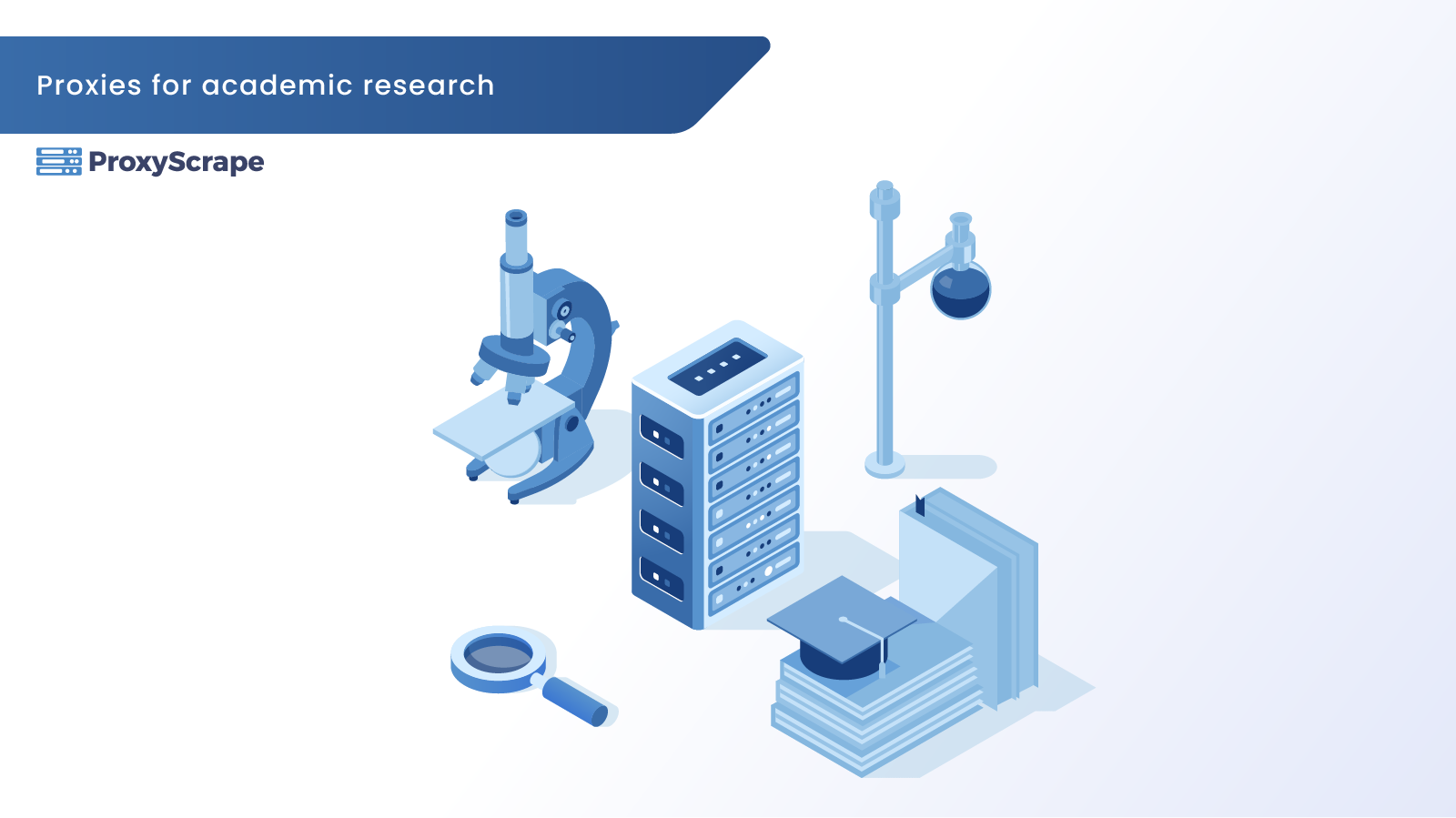
Academic Research involves gathering heaps of data from various sources, regardless of whether your research is quantitative or qualitative. Due to the comprehensive nature of these online data, academic researchers would have to depend on technology to extract them. One such automated technique that we would explore in this article is web scraping. However, web
Academic Research involves gathering heaps of data from various sources, regardless of whether your research is quantitative or qualitative. Due to the comprehensive nature of these online data, academic researchers would have to depend on technology to extract them.
One such automated technique that we would explore in this article is web scraping. However, web scraping alone would not drive fruitful results. You would have to depend on proxies as well with ethical considerations.
But first, we”ll explore the nature of these data.
Major characteristics of online data for academic research
For academic research, data on the web consists of structured, unstructured, and semi-structured quantitative and qualitative data. They are dispersed across the web in blogs, tweets, emails, databases, web pages, HTML tables, photos, videos, etc.
When extracting such large quantities of data from the web, you would often be required to address several technical challenges. These challenges are due to due to the volume, variety, veracity, and velocity of data. Let’s look at each of these variables:
Volume-As far as the data volume is concerned, they are measured in Zettabytes(billions of gigabytes) as they are in the form of large quantities.
Variety-Secondly, the repositories or the databases in which these data are stored come in various formats and rely on multiple technological and regulatory standards.
Velocity-Then thirdly, the data present on the web is dynamic as they are generated with more incredible velocity.
Veracity-The final characteristic of data available for research is the veracity of data. Since the data interact anonymously on the web due to its free and open nature, no researcher would be able to confirm whether the required data is available on the web would be sufficient, affirming its quality.
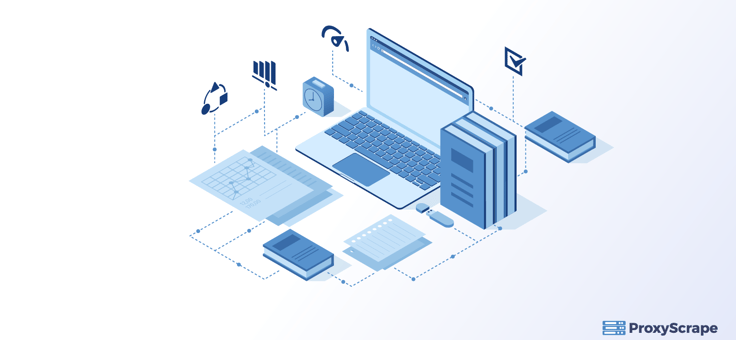
Due to the above variables, it would be impractical for academic researchers to initiate data collection manually. So the most emerging practice of collecting data for research is through web-scraping. We will explore this in the next section.
How Web Scraping can help you with your academic research?
So web scraping is the automatic extraction of web data from sources such as academic journals, research forums, academic papers, databases, and other sources that you require for academic research for further analysis.
Web scraping consists of the following phases:
Web site analysis
This is the process of investigating the underlying structure of an entity where the data is stored. This entity could be a website or repository such as a Database. The objective of this investigation is to understand how the data that you need is stored. It requires understanding the building blocks that make up the web architecture; HTML, CSS, XML, etc., for mark-up languages and MySQL for web databases.
Web crawling
Website crawling is creating automated scripts using high-level programming languages such as Python to browse the web pages to extract the data you need. You have the option of creating scripts from scratch or purchasing an already developed script.
Python contains libraries such as Scrapy and Beautiful Soap Library for automatic crawling and parsing of data. Find more about web crawling and scraping in this article.
Data organization
After the crawling tool collects the required data from a website or repository, you need to clean, pre-process and organize it for further analysis. Thus a programmatic approach might be necessary to save your time. Once again, programming languages such as Python contain Natural Language Processing (NLP) libraries that help you organize and clean data.
By now, you should have realized that it is pretty challenging to automate the entire scraping process. It requires some degree of human supervision.
Now you have gained an overview of the entire web scraping process. So it’s time to look into some of the ethical aspects of web scraping, as you need to be aware of what you can and can’t do while scraping.
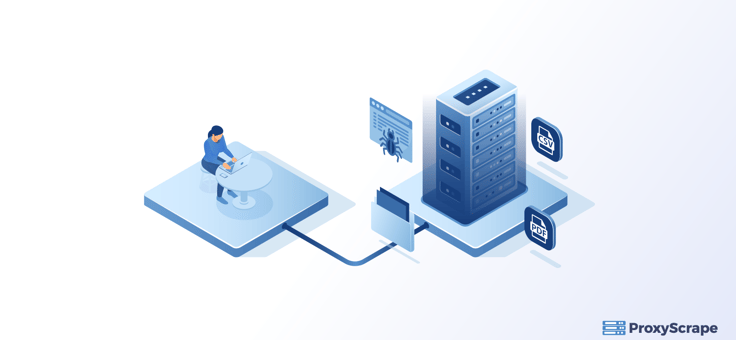
Ethical aspects of web scraping for academic research
Just because you have the automated crawling tools, does that mean you can scrape anywhere? Including the research data that is behind a login page or a private forum?
Although there are grey areas in the law related to web scraping, you should note that it is unethical to scrape data that a regular user is not supposed to access, which we will discuss below.
After all, web scraping can create unintended harm to the owners of a website, for instance. These harms and dangers are hard to predict and define.
Here are some of the probable damaging consequences of web scraping:
Individual Privacy
A research project that relies on collecting data from a website may accidentally endanger the privacy of individuals engaged in activities of the website. For instance, by comparing the data you collected from a website with other online and offline resources, a researcher unintentionally exposes who created the data.
Organizational privacy and trade secrets
Just like individuals have the right to privacy, organizations also have the right to keep certain parts of their operations private and confidential.
On the other hand, automatic scraping could easily expose trade secrets or confidential information about the organization to which the website belongs. For instance, by counting the employment ads on a recruitment website, an intelligent user would determine the company’s revenue approximately. Such a scenario would lead to a damaged reputation by the company and could even lead to financial losses.
Declining in organizational value
If you access a website without accessing its frontend or the interface, you will not get yourself exposed to marketing campaigns that a website uses to drive revenue. Likewise, a web scraping project might result in a product that its customers are unlikely to purchase from the actual product owner. This would again result in financial losses to the organization by declining its values.
Scraping Social media data for academic research
Social media is one of the prominent sources for extracting various forms of data for research. This is because of different information from social behavior to political news. However, from an ethical perspective, it’s not so straightforward to collect all the data as it may sound.
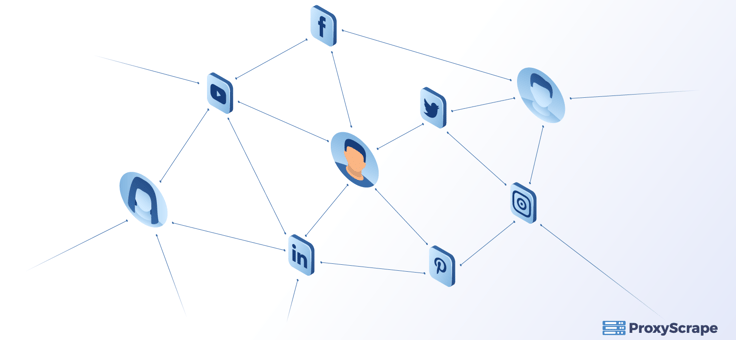
One of the reasons is social media consists of a plethora of personal data. A variety of legal regulations also protect this data. Besides, the scientific community’s ethical standards direct that you safeguard user’s privacy. This implies that you have to avoid any harm at any cost resulting from connecting actual people that your research mentions.
As a matter of fact, you can not see any of your subjects associated with your research in their private environment. This certainly applies to accessing their Facebook profiles, wall, or private messages you don’t have access to.
Obviously, you will not harm an individual personally due to data leakage when conducting quantitative research. So When performing qualitative research, be mindful of disclosing personal information by citing user posts as evidence.
The ultimate solution would be to use the Pseudonymization technique, which allows you to research data and track the subject’s activities without harming their privacy.
How proxies could help ethical scraping for academic research
Proxies could play a huge role when it comes to scraping data for academic research. There are gigantic pools of data from various sources to select from, and restrictions will make research more complex. Proxies can help you overcome many of these obstacles. Let’s find out how.
Bypassing geo-restrictions by location- Some journals and academic papers restrict access for users from certain countries. By using proxies, you could overcome this restriction as it masks your IP address. Furthermore, you could select residential proxies from various locations across the globe so that proxies will not reveal your location.
Automate the data gathering process- As you have discovered in the previous section, web scrapers can scrape a lot of data. However, they would not be able to bypass restrictions imposed by websites such as captchas. Proxies can help you to overcome such constraints and help scrapers to scrape most of the data.
Helps you to be safe and anonymous- When you’re doing research projects for organizations, you could be a victim of hackers. This is because the hackers may intercept your connection and steal confidential data. However, you will be anonymous when you’re behind a proxy server as your IP address is hidden. Therefore it would prevent the hacker from stealing your data.
Which type of proxies is most suitable?
You can use either the datacenter and residential proxies to mask your IP address out of the available proxies.
With Residential proxies, you would be able to use a pool of IP addresses from multiple countries, which we already discussed above.
Furthermore, when you use a pool of proxies, you could rotate them to appear to the target website as different sources accessing it. So you’re least likely to get an IP block.
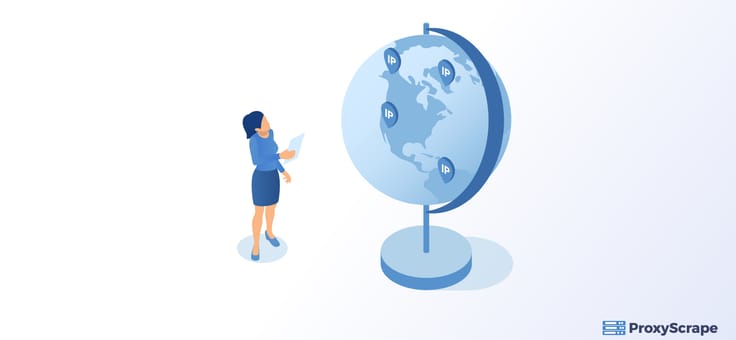
Also, certain research websites display different information to users from different countries. So another advantage of rotating proxies is that you can change your location and verify if the data also changes with these different proxies. Doing so ensures that your research is comprehensive and effective from multiple sources from various countries.
Proxies in Data Journalism
When data journalists scrape journal data, most journalists are concerned about identifying themselves. Some journalists believe that it is essential to identify themselves when scraping data from specific websites. This is analogous to introducing yourself to someone before conducting an interview.
So if you are a journalist who prefers to identify yourself, you have to write a note in the HTTP header containing your name, and you are a journalist. You may also leave your phone number if in case the webmaster wishes to contact you.
In contrast, if you are a journalist who does not wish to reveal yourself when gathering data for stories, you can scrape the data anonymously with the assistance of proxies. However, you would have to stick to best ethical practices and follow the website’s rules, as we have stated above. This is a scenario similar to carrying out an undercover interview when the subject is unaware that you are interviewing them.
Conclusion
We hope you have an understanding of the data scraping process for academic research. When you scrape the data, there are ethical guidelines that you would have to follow without causing any unintentional damage to the website owners.
Proxies can be your savior in such circumstances, as well as overcoming the restrictions mentioned in this article.
We hope you enjoy reading this and you will implement the methods mentioned in this article for scraping the research data for your research.